
Nature
11:25, 26-Dec-2018
Protected sea lions overwhelm Chilean fishermen
Updated
10:59, 29-Dec-2018
CGTN
01:50
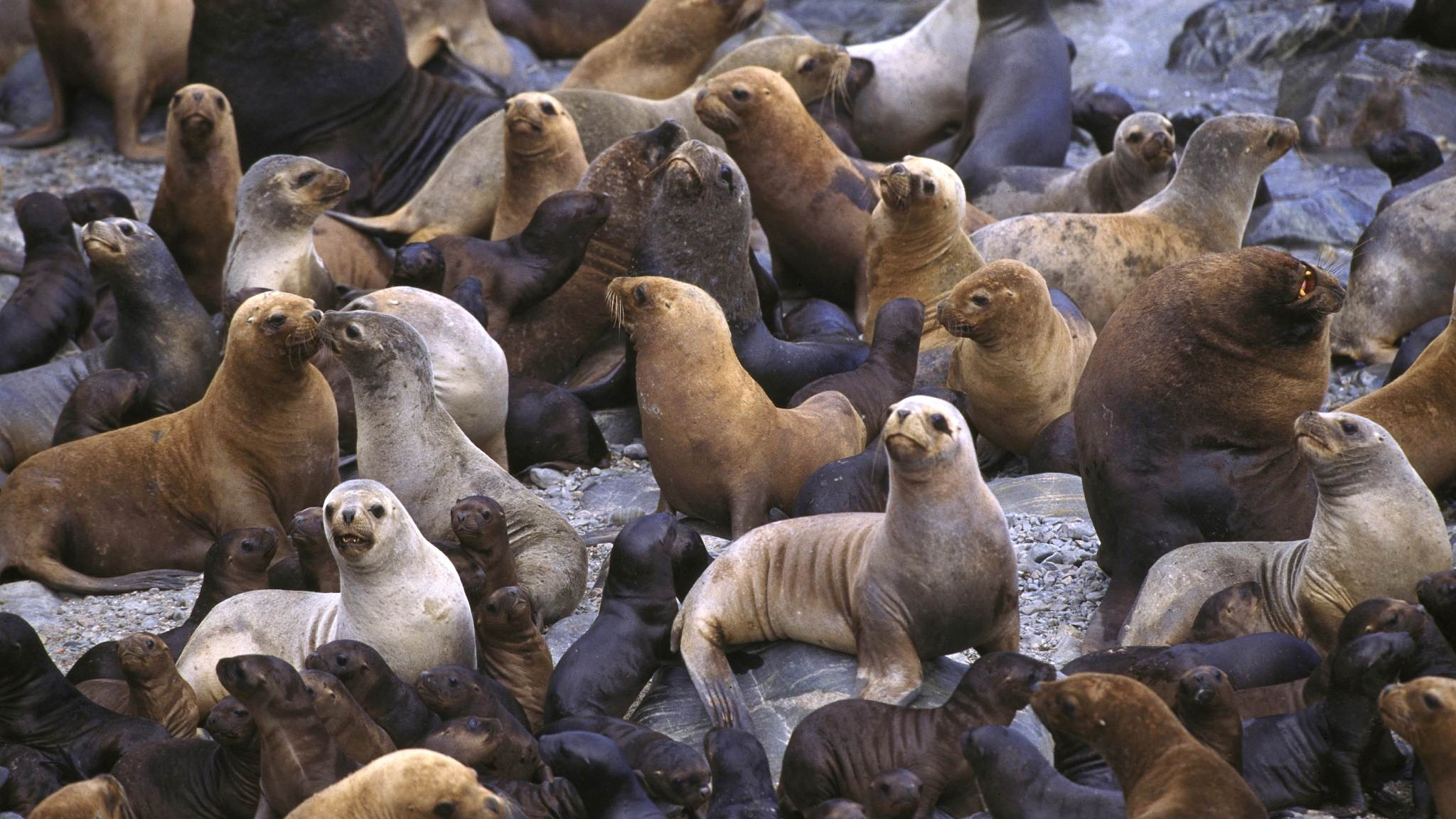
Off the coast of Chile, fishermen face competition from a cunning carnivorous hunter that has challenged their industry with its voracious appetite. Around 40 percent of the world's sea lion population, roughly 200,000 animals, live in this area and are beating the fishing industry.
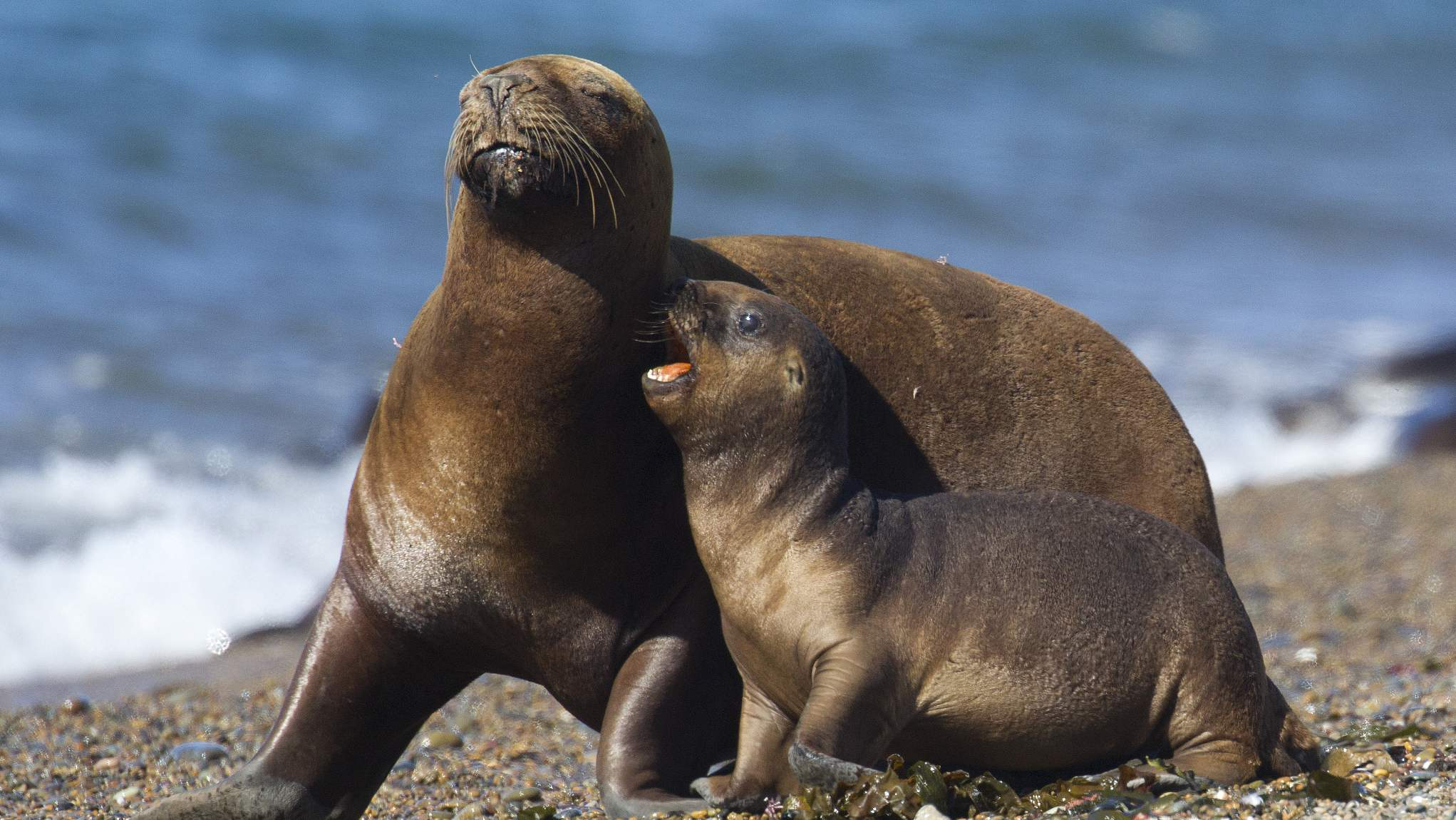
A mother South American sea lion and her cub /VCG Photo
A mother South American sea lion and her cub /VCG Photo
For Chile's fishermen, sea lions are a plague. "We try to make them go away but it's impossible," complained Mario Rojas, a local fisherman. Part of the wider seal family that was once hunted mercilessly to close extinction globally, the South American sea lion in Chile has been protected for the last 28 years. Hunting them for their richly prized fur is illegal
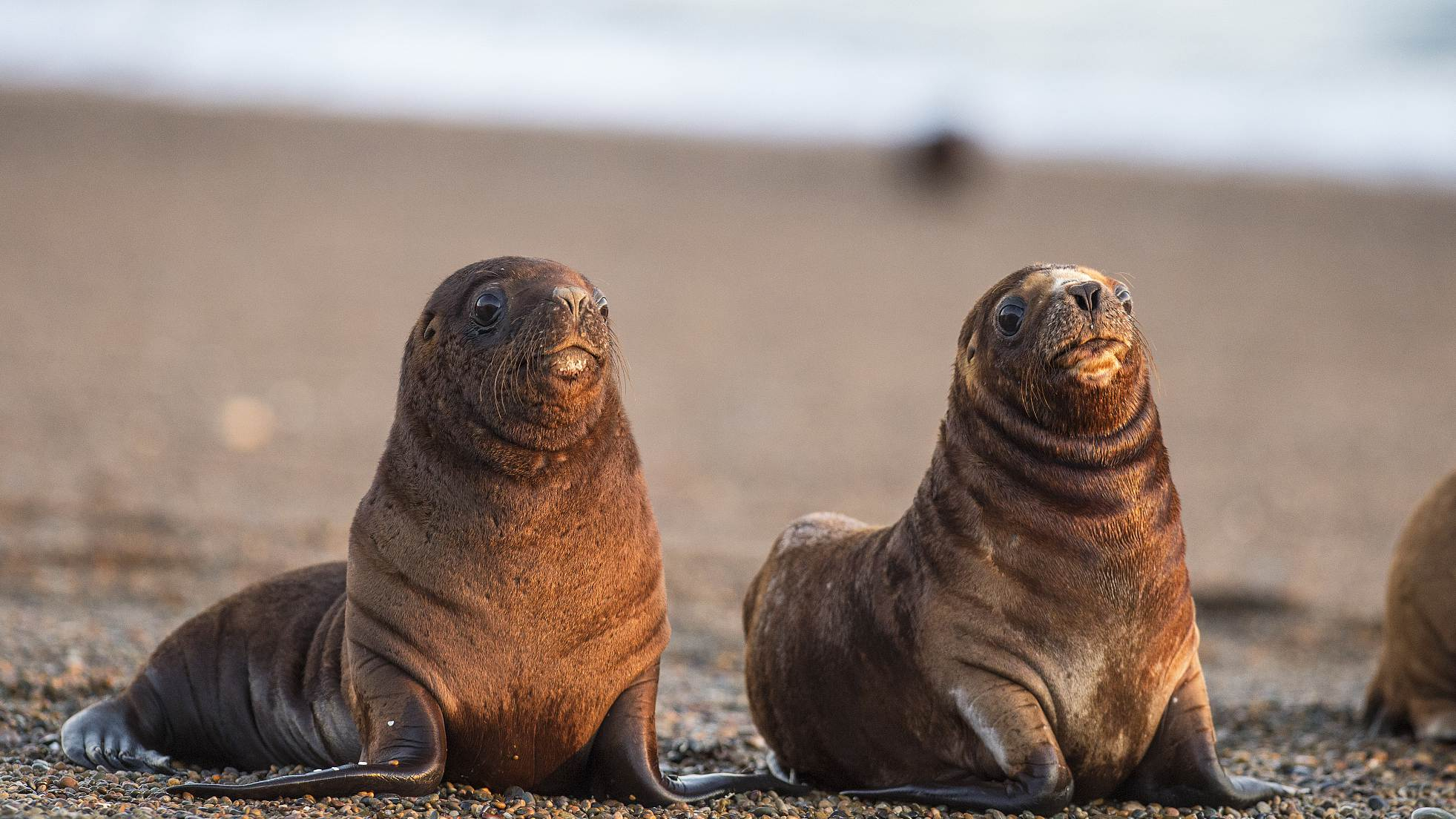
Two South American sea lion pups /VCG Photo
Two South American sea lion pups /VCG Photo
Liberated from their most dangerous predator – sharks and orcas – the sea mammal's population has been on the rise, thanks to the abundant fodder they manage to steal from fisherman.
They have learnt to distinguish the sound of the fishing boats' motors, and follow the vessels as they head out to sea. "The sea lions don't hunt anymore. They hear the noise of a boat and they know that the food is there," said Rojas
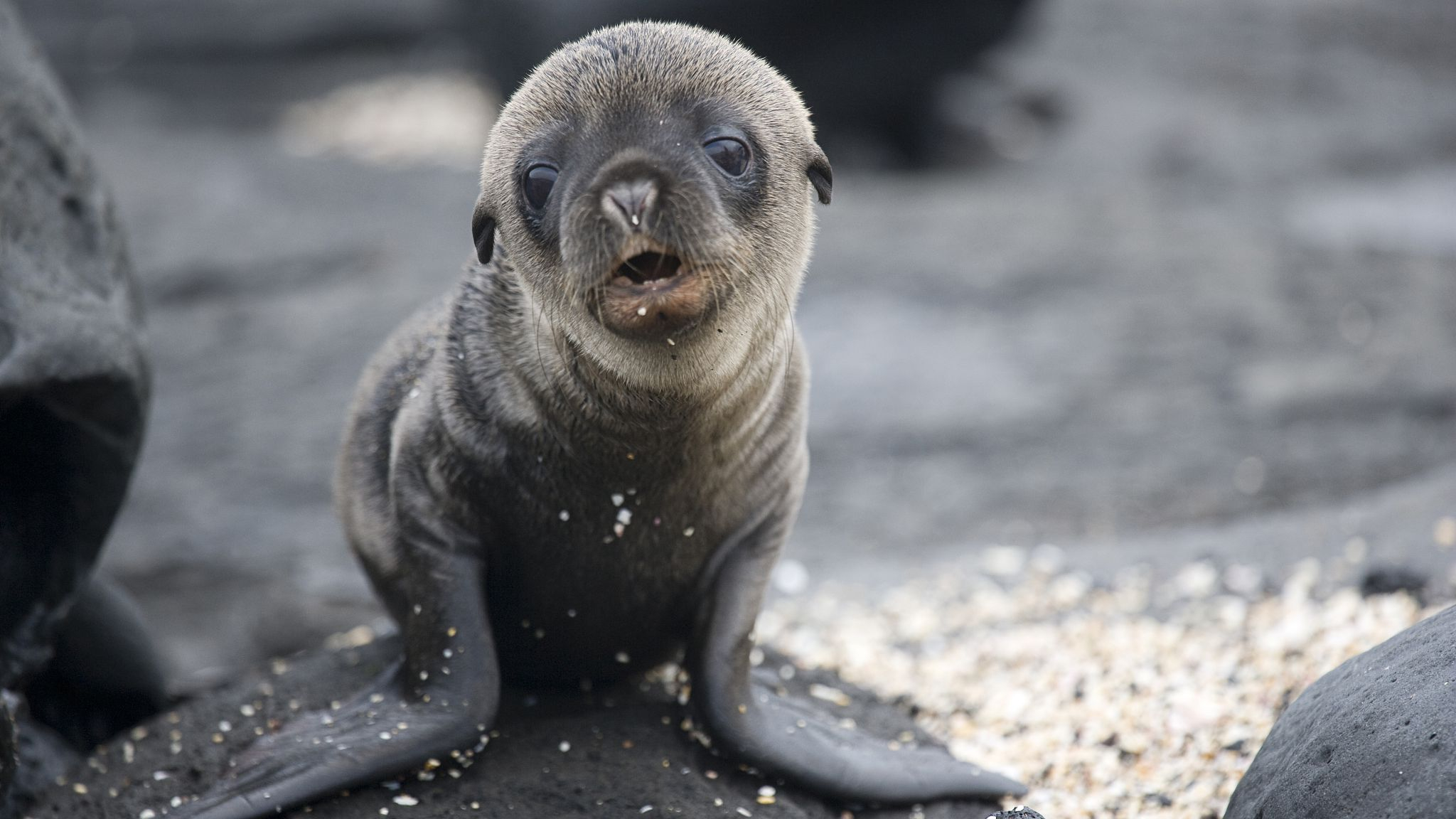
An infant South American sea lion /VCG Photo
An infant South American sea lion /VCG Photo
With their sharp teeth and the enormous power in bodies that can weigh around 300 kilograms, they can destroy fishing nets and gobble up the treats inside. And they have huge appetites – each of them consumes about 40 kilograms of fish a day.
Rojas claims more than 80 percent of the boats working around the port of Valparaiso return from a day's work empty, with their nets shredded. The sea lions hang around on the beach or beneath the wharf, waiting for the scraps and entrails thrown back into the water by fishermen.
'A crisis'
A decade ago, at the Portales cove at Valparaiso, where Rojas was the fishermen's leader, around 590 kilograms of fish were caught daily, but that is now down to only 50 kilograms.
"We're going through a crisis specifically because of sea lions, but we also have fishing quotas. People are desperate," said Jose Alvarado, leader of the fishermen at Hualaihue, around 1,000 kilometers to the south of the capital Santiago.
Fishermen want the ban on sea lion hunting lifted so they can control the numbers.
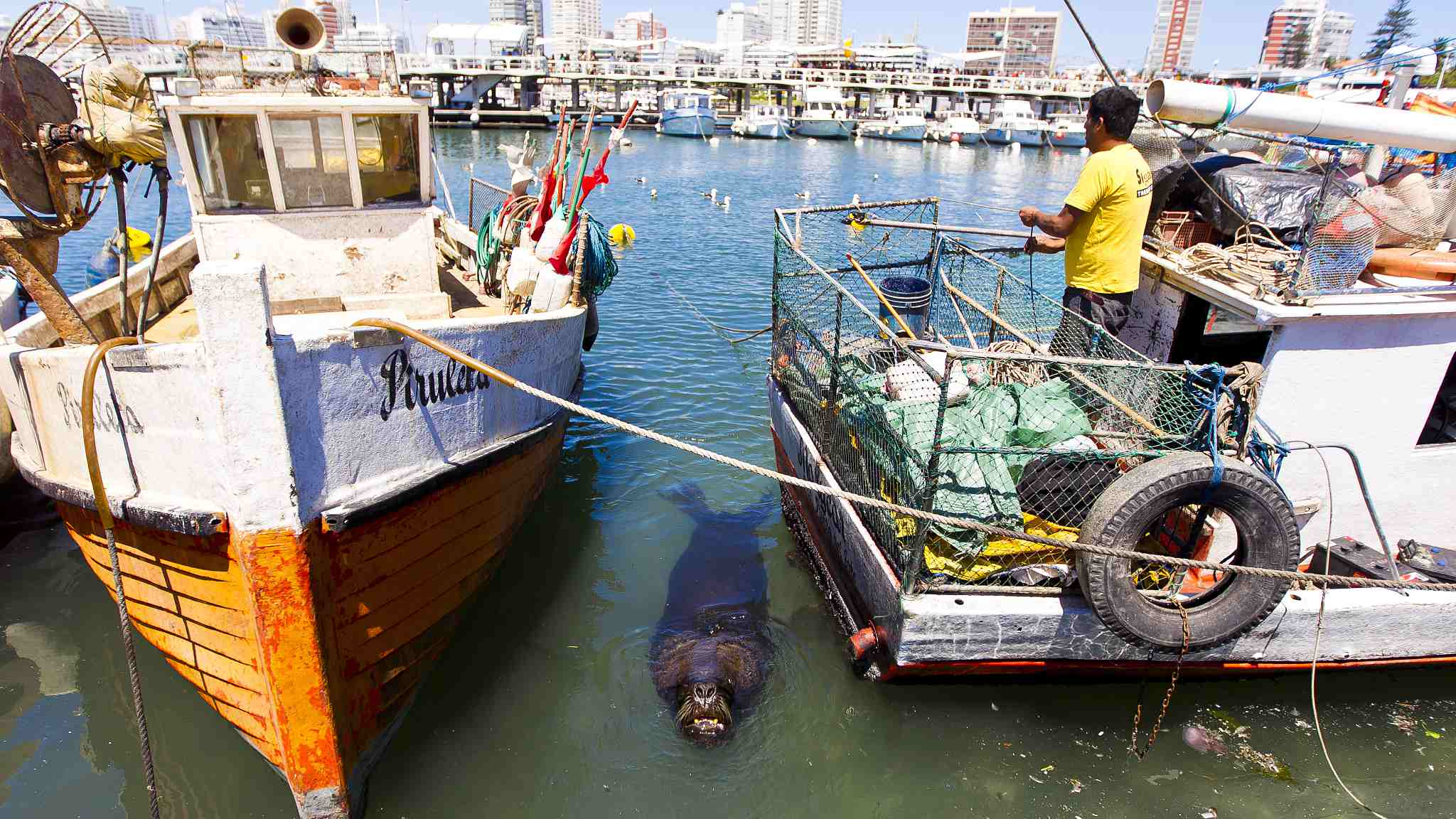
A South American sea lion swims close to fishing boats in the hope of finding scraps. /VCG Photo
A South American sea lion swims close to fishing boats in the hope of finding scraps. /VCG Photo
"The only viable solution for the fishermen is to eliminate the sea lions and this won't happen," according to fisheries under-secretary Eduardo Riquelme. He admits that sea lions are creating problems for the fishing industry but the first step in addressing the issue will come in February with a census to evaluate the size of the Chilean population of these eared seals.
The government has also agreed with fishermen to convene a commission of experts to study the problem, while also eradicating some of the fishermen's bad habits, such as throwing fish entrails, which sea lions feed on, back into the sea. They've agreed to begin tests on boats fitted with ultrasound equipment to scare away sea lions, and machines that will reel in nets quicker.
'Catastrophic problems'
The hunting ban was imposed to preserve the South American sea lion, after two closely related fur seal species were almost driven to extinction during the 20th century.
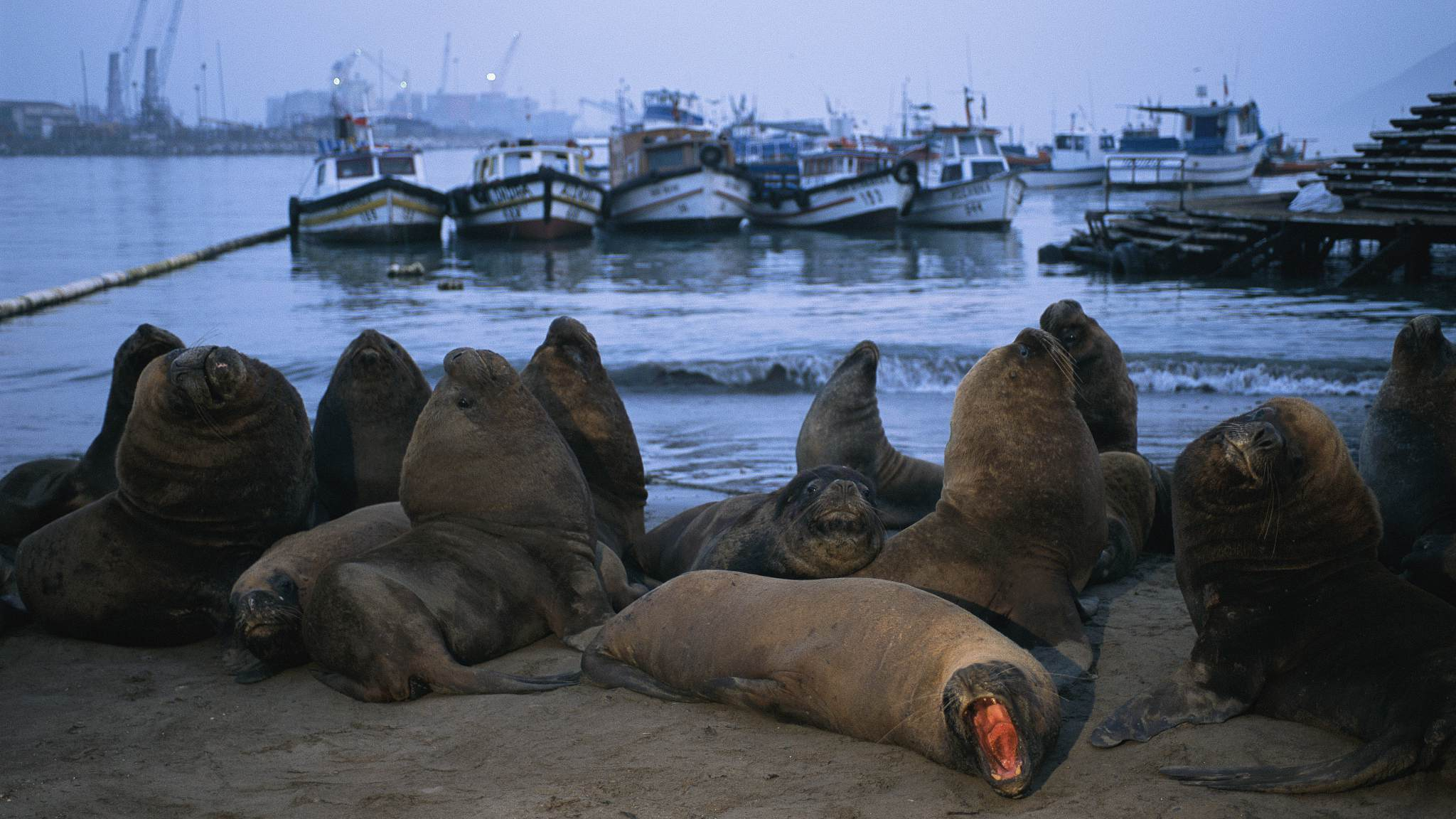
Sea lions on a beach in the port city of Iquique, Chile /VCG Photo
Sea lions on a beach in the port city of Iquique, Chile /VCG Photo
Chile has signed international accords to protect the sea lion and any violation would engender serious penalties, such as the suspension of salmon imports from the U.S., an industry that generates almost four billion U.S. dollars a year.
The predator's presence is necessary "to balance food chains," Jose Luis Brito, director at San Antonio's natural history museum. Hunting by humans "can produce catastrophic problems with huge consequences, because they are the ones that control life," said Brito. But, "since they don't have any rivals, and not enough predators," their numbers are on the rise, "provoking them to compete with another predator, which is us."
Source(s): AFP

SITEMAP
Copyright © 2018 CGTN. Beijing ICP prepared NO.16065310-3
Copyright © 2018 CGTN. Beijing ICP prepared NO.16065310-3